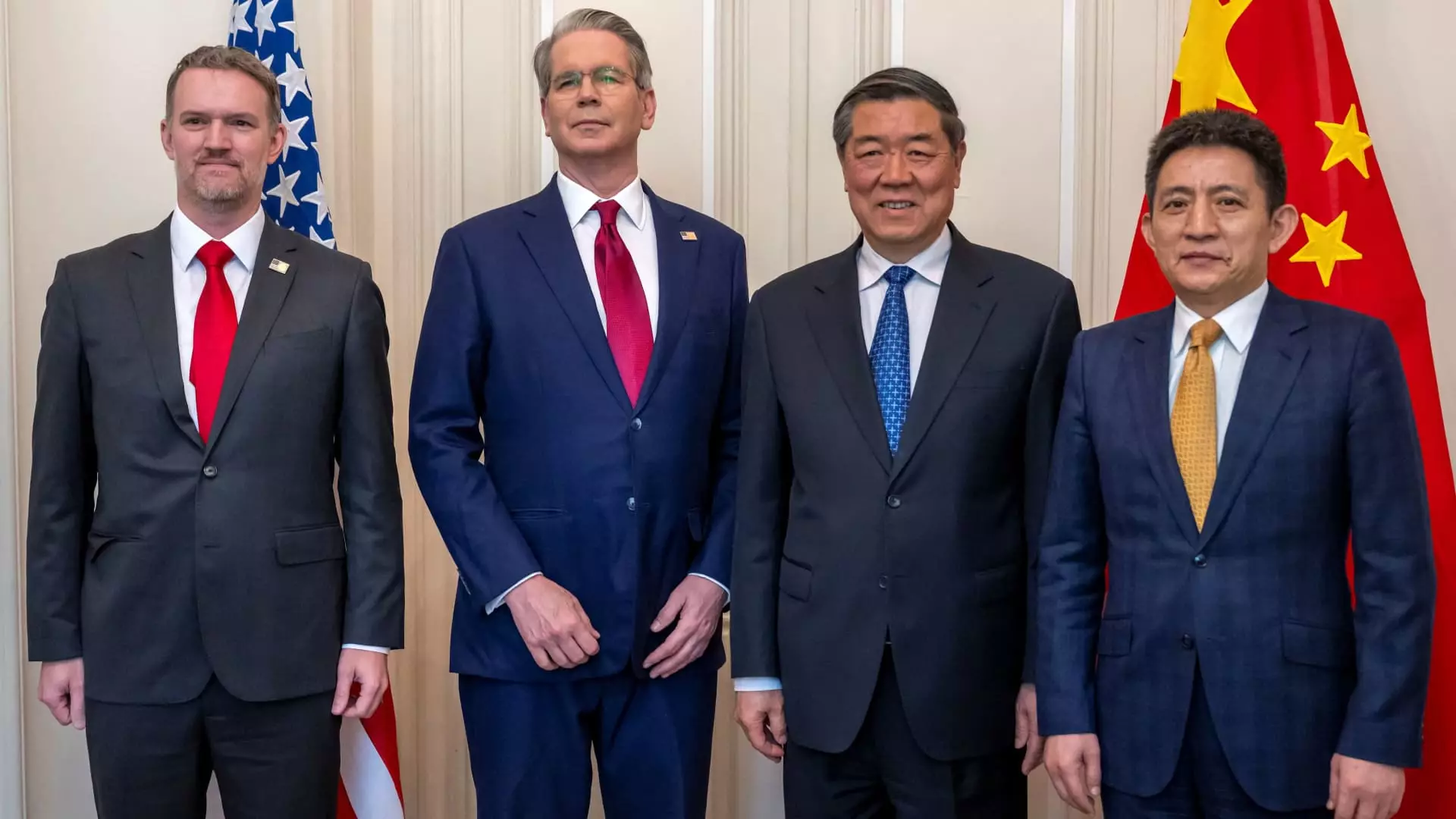The ongoing trade negotiations between the United States and China represent more than just a series of economic discussions; they signify a profound geopolitical struggle for supremacy between two of the world’s largest economies. As U.S. Treasury Secretary Scott Bessent, Commerce Secretary Howard Lutnick, and Trade Representative Jamieson Greer gather in London with Chinese counterparts, the atmosphere is rife with tension and uncertainty. This meeting follows President Donald Trump’s commitment to a phone dialogue with Chinese President Xi Jinping, highlighting an attempt to stabilize an increasingly precarious situation. Yet, as the two nations sit down to negotiate, the question looms large: can any meaningful resolutions emerge from such a charged environment?
The backdrop to this London meeting is painted with months of aggressive tariff announcements and retaliations that have underscored the chasm separating U.S. and Chinese positions. Earlier in June, a temporary truce instituted a 90-day moratorium on duty escalations, but ongoing allegations of backsliding by both sides threaten to unravel any semblance of trust. The U.S. accuses China of dragging its feet on granting crucial export permits, while China points to the U.S.’s recent visa restrictions on Chinese nationals as blatant diplomatic hostility. Such posturing underscores a fundamental problem—each side seems convinced of its own righteousness in this trade standoff, further entrenching them in a stalemate that appears less likely to loosen with each meeting.
A Deeper Conflict: Beyond Trade
Analysts have repeatedly warned that this rift is not merely about tariffs; it expands into the fabric of international relations, technology, and even defense. Rebecca Harding, a keen observer from the Centre for Economic Security, points out that the underlying currents of this conflict are much more complex than the transactional interpretations that dominate public discourse. She argues that we are witnessing an “existential battle” over data flows, technological dominance, and military preparedness in a digital landscape fraught with uncertainty.
The battle for technological supremacy is especially pronounced in the realm of artificial intelligence and digital infrastructure. The stakes are astronomical—not just for companies in Silicon Valley or Chinese tech hubs, but for the very essence of what it means to be competitive in the 21st century. The ramifications of a faltering economy would magnify the geopolitical ramifications of a trade war, ensnaring not just two nations, but possibly reshaping global markets.
Critically, the discussion around the exchange of resources like rare earth minerals cannot be underestimated. They are pivotal for everything from electronics to renewable energy technologies. If China restricts access while the U.S. seeks alternative suppliers, what ensues could be a battle of attrition characterized by strategic maneuvering rather than concrete negotiations.
The Illusion of Progress
Some voices within the economic community express a cautious optimism regarding the London talks. Zhiwei Zhang, chief economist of Pinpoint Asset Management, offers a tempered perspective, suggesting that there could be incremental resolutions on specific issues like rare earth exports. Yet, even he admits that substantial breakthroughs are unlikely in the short term. This sentiment emphasizes a pivotal truth: the final outcomes of such discussions often hinge less on the talks themselves and more on the broader geopolitical currents shaping these interactions.
What is disheartening about this series of negotiations is the visible lack of mutual understanding or goodwill. The inevitable back-and-forth of accusations seems to overshadow the potential for compromise. Instead of entering discussions with an open mind to solve overarching problems, each party’s perception is distorted by a belief in its own victimization. The reliance on punitive tariffs rather than collaborative economic strategies signals a troubling trend that could forever redefine the global economic landscape.
The Future Beckons
In the end, what unfolds in London may be less about tangible outcomes and more about the acknowledgment of the stakes involved. Both nations must decide whether they are willing to engage not just as economic adversaries but as key players in a world increasingly interlinked by digital technologies, trade agreements, and competitive markets. There is still time for both to pivot towards a cooperative path, yet as tensions mount, the dials of a possible trade war turn ominously forward.
This situation calls for robust and imaginative diplomacy. What’s needed is less of a transactional approach and more of a strategic partnership, although this feels far-fetched in the theatrics of current political theatrics. The urgency to transform these conversations into actions that will benefit not just the two nations involved, but the global community, has never been more pressing. The world watches and holds its breath for the next chapter in this unfolding saga.


Leave a Reply